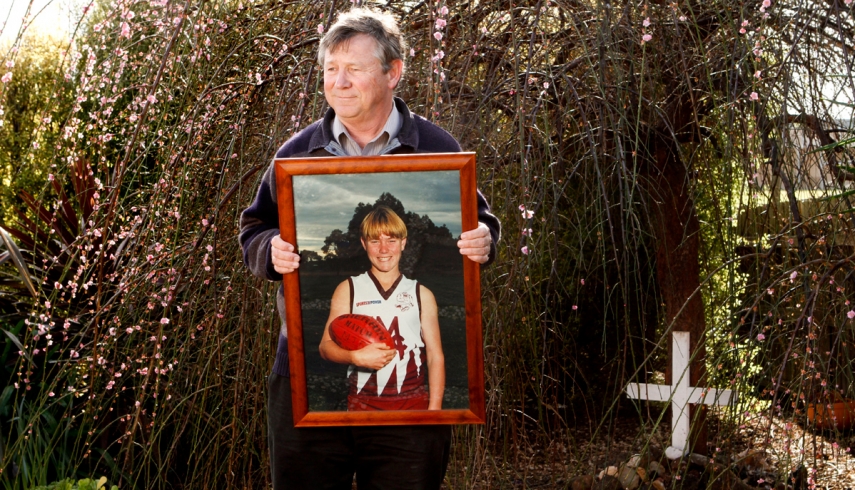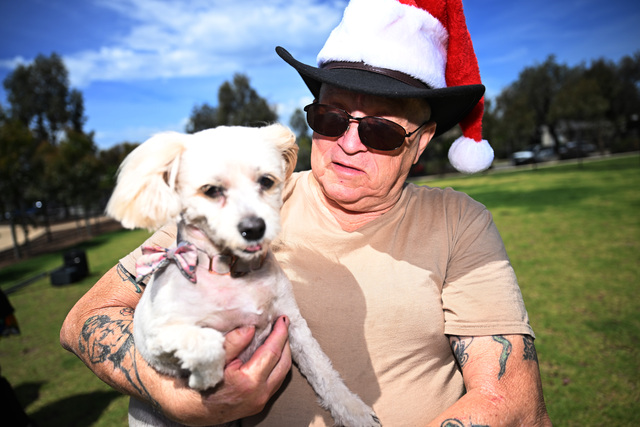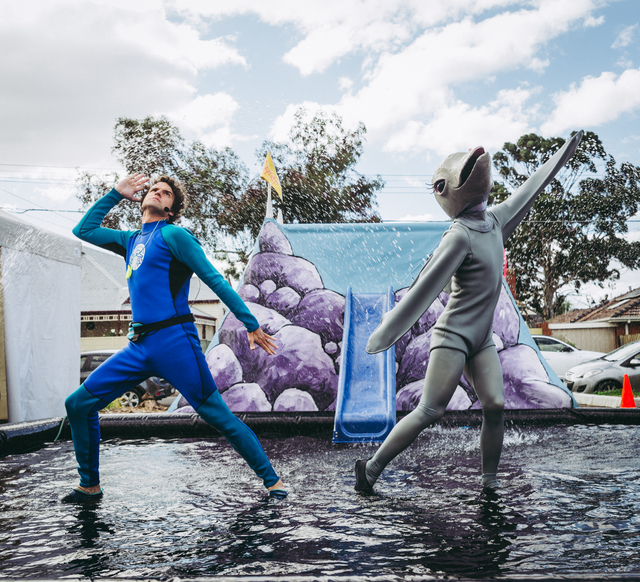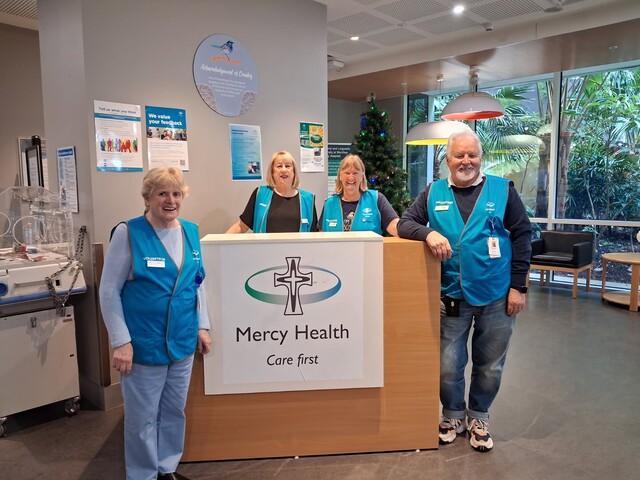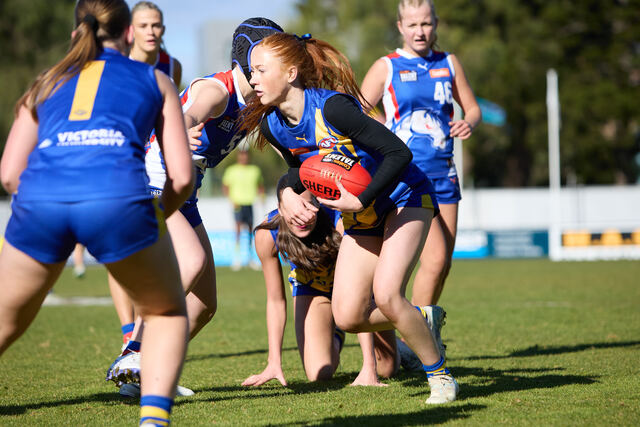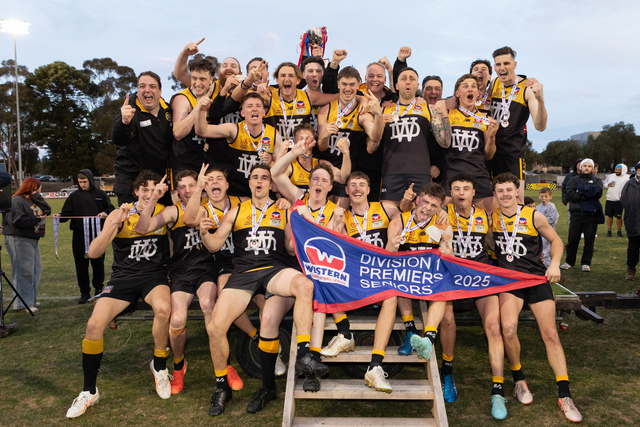Alcohol is relatively cheap and the drug of choice for teenagers. But apart from tougher laws how do we stop binge drinking among young people? Andria Cozza reports.
HIS body was found covered in mud. His jacket was about a metre away from where he lay on sodden grass. At 15, Leigh Clark died a most lonely death.
On a Friday night in August, 13 years ago, his parents, Melton couple Bruce and Lorraine, called police, concerned that their son hadn’t returned home. What happened next has tormented them ever since.
“He was meeting some friends at McDonald’s, where they were due to walk to a local alcohol-free disco,” Bruce Clark recalls.
Due to bad weather, his friends didn’t turn up and Leigh met some other friends who planned to drink alcohol before the underage event.
One of the group had convinced his mother to buy imitation vodka essence a few hours prior.
Three 375ml bottles of Hoyt’s Vodka Essence, costing $5.50 each, were shared among the teenagers, the youngest aged 12.
In the coroner’s report, Leigh was said to be drinking from one of the bottles.
Some witnesses said they saw him drink the vodka essence mixed only with soft drink.
One said they saw him drink it ‘neat’. One bottle of the essence had about 70 per cent alcohol concentration.
The teenagers left the house where they had started to drink the essence and returned to McDonald’s. Leigh collapsed on a table and the group was asked to leave.
“I was told he had real trouble holding himself up. Leigh said he was feeling crook and said he would walk home,” says Clark.
It wasn’t until noon on the Sunday that Leigh was found only 300 metres from where he left the group.
“He collapsed in a muddy paddock … I was walking the streets until 3am. He was eventually found by a couple of schoolmates taking a short cut across the paddock.’’
Aside from the trauma the Clarks faced, the coroner’s report stated Leigh died from hypothermia. The finding caused his family added stress.
“Experts told us they were convinced he died from alcohol poisoning, but the coroner dismissed the opinions”. Clark is adamant it was alcohol poisoning.
Leigh drank the equivalent of 22 standard drinks in half an hour, which Clark describes as “impossible”.
After his son’s death, Clark began campaigning to have the sale of 375ml vodka essence banned and for legislation to prohibit parents supplying to teenagers — that would bring Victoria in line with other states.
He succeeded on both counts.
Under Victorian law, since November it has been illegal to supply alcohol to anyone under 18 in a home, unless the provider has the parent’s permission.
“Leigh was a character, very outgoing. I still remember a time … he was only a little tacker, around three years old. We stopped for a sandwich on our way to Queensland and he joined a family that was playing cricket. He just starting batting.”
Today, Clark continues to campaign on a local and national level.
“I made a decision to speak about it. The message has to be heard and it’s up to the parents. Many parents don’t know what’s really going on.
“The government has a role, industry has a role, schools and kids themselves, but it is largely parents.”
The issue became a reality for Moorabool mother Sally, who asked that her real name not be used, when one of her children was admitted to hospital for binge drinking.
‘‘It was really frightening, but our child felt comfortable enough to call us. Many parents don’t have that luxury; a lot of kids keep things from their parents.
‘‘But the next morning, we were very clear with what could have happened. We said: ‘You could have been raped, you could have been badly hurt.’ It was a wake-up call.’’
The incident had a significant impact, says the mother, adding that it’s important parents keep communication flowing with their teenagers.
‘‘Our teenager was bullied and was forced to drink and ‘write themselves off’’.
Sally says peer pressure is ‘‘incredible’’ for young people, highlighting the importance of parents making themselves accountable.
‘‘When my kids would tell me their friends’ parents would be around during a party, I had no problems calling the parents and checking.’’
Sally says she’s aware drinking is one of the ways in which teenagers experiment and push boundaries.
‘‘But it’s a parent’s role to talk to your kids about what can happen. I know that for a lot of teenagers drinking is about masking their insecurities. And I know one of my children started drinking because she felt like she needed to fit in.’’
Sally says parents need to be vigilant in raising teenagers.
‘‘Someone could say to my child, ‘Try some Ice (methamphetamine)’, and the next day we could have an Ice addict.’’
She says children as young as 12 are increasingly looking for thrills, at any cost.
‘‘There’s no more milestones for teenagers; everything is so accessible. What do you do for a thrill when you have it all?
‘‘Children used to wait and save. They would wait until they turned 18, until they could drink, but now they can get drunk at 16. The idea of having to wait is a concept they’re not familiar with.’’
Sally is grateful for the unifying influence of sports clubs in Bacchus Marsh and their efforts to discourage teenage drinking.
President of the Bacchus Marsh Football Club Pat Mullen says a no-drinking policy for junior games is an important part of the club’s philosophy.
Turning Point drug and alcohol centre’s addiction medicine specialist Dr Matthew Frei says teenagers tend to drink in patterns and often in settings that put them at risk.
‘‘It’s a period of life when they’re taking risks and finding out about themselves and how far they can extend themselves.’’
Frei says that alcohol impairs teenagers’ judgment, causing them to behave impulsively, and disrupts motor skills.
But he says that while the evidence of binge drinking is increasing, drinking excessively is almost accepted as a social norm.
‘‘It’s almost a rite of passage for teenagers — an expected pattern of behaviour.
‘‘In the teenage years, there’s an important amount of brain development with substantial neurological changes. There’s a growing body of evidence that alcohol adversely affects the brain.’’
Frei agrees that drinking alcohol is a part of Australian culture and has a great deal to do with socialising.
‘‘It’s socially accepted. Alcohol is considered an essential drug in celebratory interaction.’’
But he says teenagers can be difficult to engage in discussing alcohol’s potential harm.
‘‘We know young people who observe their parents drinking will imitate their behaviour. We formulate most of what we do from our parents.
‘‘But it can be hard for adults because they think they can do what they like because they are in fact, adults, and their children are still children.
‘‘Parents need to reflect on the effect that their drinking has on others.’’
Frei says he knows that talking about regulation and limiting an individual’s right to choose aren’t the most popular dinner party topics.
‘‘They are the sorts of discussion that are difficult to have. No one likes to talk about regulation.
‘‘However, alcohol is widely available and socially acceptable, relatively affordable, which makes it the most popular drug for young people.
‘‘We need to think of innovative ways to get through to teenagers. A 14-year-old is not interested in hearing about the harm of alcohol.
‘‘What about telling them that it makes you less sexy, that it makes you fat? That it really doesn’t have much going for it?’’
For more advice and information on Teen Drinking Law visit vichealth.vic.gov.au/teendrinkinglaw

